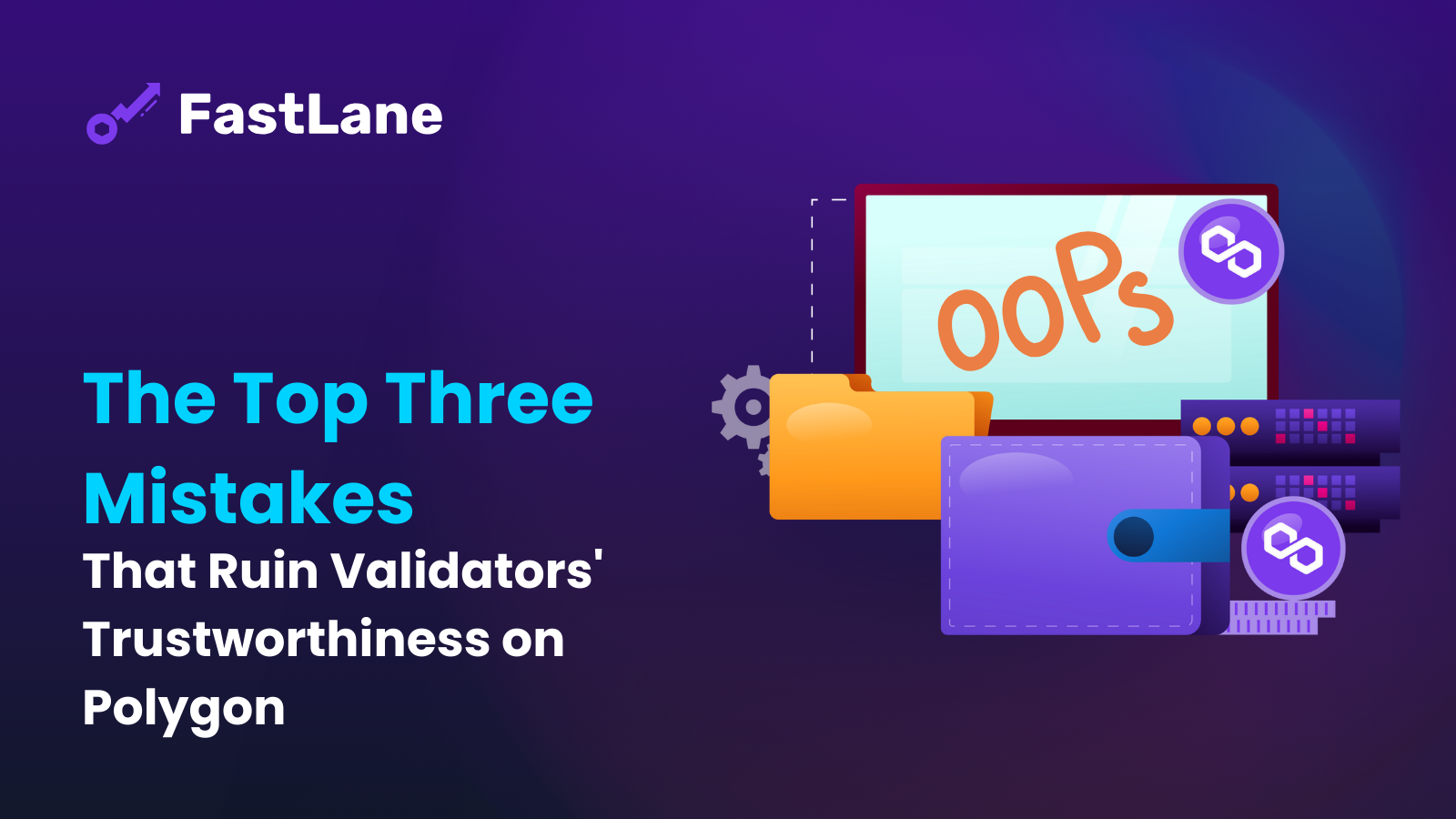The Top Three Mistakes That Ruin Validators' Trustworthiness on Polygon
2023-09-29

VALIDATORS
Trust is the bedrock upon which decentralized systems thrive.
For Polygon Validators, maintaining trustworthiness is not just a matter of reputation; it's a critical factor that determines their success in the ecosystem.
However, even the most seasoned validators can sometimes falter, making mistakes that can erode the trust they've painstakingly built.
Let's delve into the top three mistakes that can jeopardize a validator's trustworthiness on the Polygon network.
1. Inadequate Infrastructure and Downtime:
One of the primary responsibilities of a validator is to consistently produce and validate blocks.
Any downtime, whether due to technical glitches, inadequate infrastructure, or poor maintenance, can result in missed blocks.
This not only reduces the rewards for the validator but also impacts the stakers who have delegated their MATIC tokens to them.
Deep Dive: A technically skilled coder understands the nuances of maintaining a robust infrastructure.
However, cutting corners by relying on subpar hardware or not having redundancy measures in place can lead to unexpected downtimes.
In the world of staking, where every second counts, such lapses can be costly and can quickly erode trust.
2. Lack of Transparency and Communication:
In the decentralized space, transparency is paramount. Validators are expected to keep their stakers informed about their operations, performance metrics, and any potential issues. A lack of open communication or withholding of critical information can raise red flags.
Deep Dive: Consider a scenario where a validator is aware of a potential security vulnerability but chooses not to disclose it to their stakers. If this vulnerability is later exploited, the validator's reputation can take a significant hit. Regular updates, open channels of communication, and a proactive approach to addressing concerns can go a long way in building and maintaining trust.
3. Passive Network Participation:
Being a validator on Polygon is not just about validating transactions. Validators are also expected to actively participate in network governance, contribute to protocol upgrades, and be a part of the broader community discussions. A passive approach, where a validator merely performs the bare minimum, can be perceived as a lack of commitment to the network's growth and well-being.
Deep Dive: The Polygon ecosystem is dynamic, with regular protocol upgrades, governance proposals, and community initiatives. Validators who actively participate, voice their opinions, and contribute to the network's betterment are seen as valuable assets. On the other hand, those who remain passive risk being perceived as opportunistic, only in it for the rewards.
For a technically skilled coder running a validator, these pitfalls might seem basic. However, in the daily grind of maintaining nodes, ensuring security, and optimizing for rewards, it's easy to overlook these foundational aspects. The key lies in striking a balance – ensuring technical excellence while also prioritizing transparency, active participation, and stakeholder communication.
In the age of institutional staking, where professional entities with stringent due diligence processes are entering the fray, the margin for error is minimal. Validators who recognize these pitfalls and actively work to avoid them position themselves as trustworthy pillars of the Polygon ecosystem.
Are you a Polygon Validator ready to improve your trustworthiness?
We are currently helping 26 Polygon Validators - who produce 30.75% of all blocks - to protect the Polygon network while earning more MATIC from MEV auctions.
By just patching your sentries with a free one-line code you can collect MATIC while keeping the network clean and safe from harmful activities like frontrunning and sandwich attacks.
On average it takes less than 10 minutes to onboard before you can start making a positive influence on the Polygon user experience and collect MATIC that would otherwise just be collected by Searchers.
We are helping validators make MEV more transparent on Polygon and increasing trust with their delegators by building decentralised infrastructure.
If you would like to know more, please email me at [email protected]